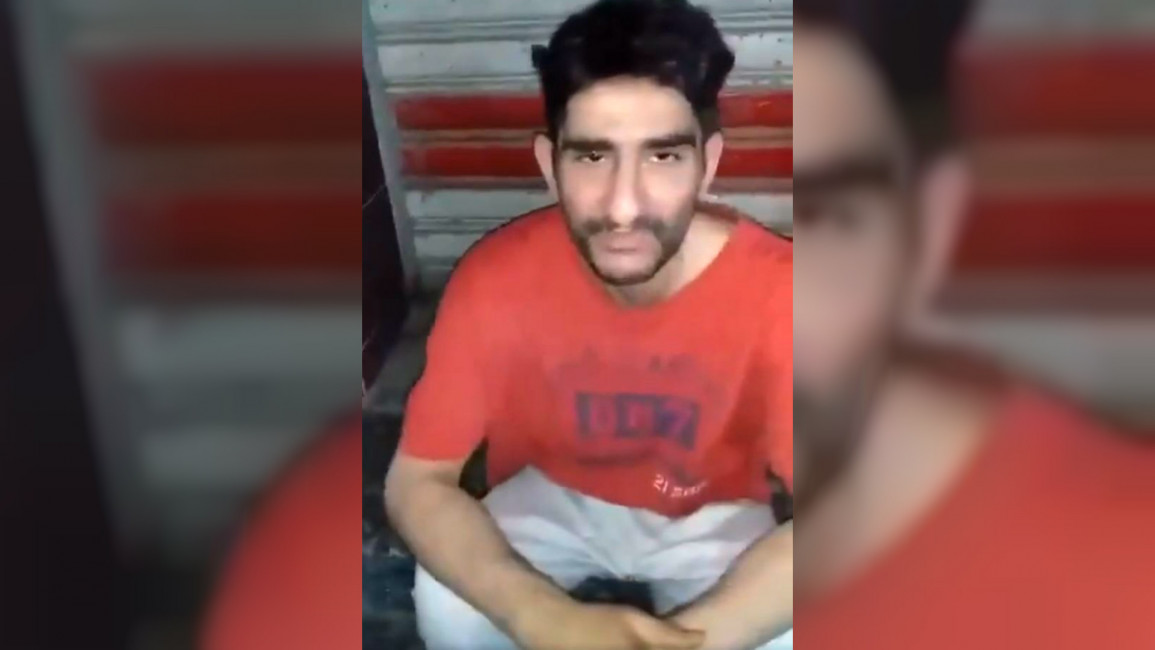Man dies on Baghdad streets after Trump administration deports him to Iraq
Jimmy Aldaoud, a 41-year-old former resident of Detroit, Michigan, died in the Iraqi capital on Tuesday as he was unable to procure insulin to treat his diabetes, Politico reported.
Aldaoud was an Iraqi national but was born in a refugee camp in Greece and came to the US with his family as a child, according to the American Civil Liberties Union (ACLU) and members of his family.
He had never visited Iraq and did not speak Arabic, Edward Bajoka, an immigration attorney who described himself as close to Aldaoud's family, said on Facebook.
While the cause of Aldaoud's death has not been officially confirmed, Bajoka noted that his inability to acquire insulin was the "likely cause" behind his death.
Michigan Congresswoman Mari Manoogian on Wednesday shared a video filmed by Aldaoud in Baghdad two weeks prior.
In the video, a dishevelled Aldaoud describes his deportation from the US and subsequent homeless in Baghdad.
"I've been in the United States since [I was] six-months-old and just two and a half weeks ago, an immigration agent pulled me over and said I'm going to Iraq, I refused and said, 'I've never been there. I've been in this country my whole life'," he said.
"They wouldn't listen to me. They wouldn't let me call my family. I'm here now and I don't understand the language. Basically I've been sleeping in the street. I'm diabetic."
He added that he had been vomiting from lack of access to insulin.
"Sleeping in the street, trying to find something to eat. I've got nothing over here."
In the video shared with Manoogian by Aldaoud's lawyers, he also describes being "kicked" in the back by an Iraqi man who said Aldaoud was sleeping on his property.
Aldaoud was also a diagnosed paranoid schizophrenic, according to Bajoka who claimed "his mental health was the primary reason for his legal issues that led to his deportation".
Permanent residents in the US are still subject to deportation if they commit a number of deportable offenses, which include violent crimes, fraud and crimes involving moral turpitude.
|
|
Aldaoud had previously been convicted for disorderly conduct and served 17 months in prison for a home invasion, according to the ACLU and Politico.
"Rest In Peace Jimmy," Bajoka said. "Your blood is on the hands of ICE and this administration."
Deportation of Chaldean Christians
Aldaoud was born into a Chaldean Christian Iraqi family, ethnic Assyrian adherents to a branch of the Catholic church, with members in Iraq, Syria, Turkey, Palestine and Iran.
The US state of Michigan is home to the world's largest Chaldean diaspora community.
The Trump administration has sought to hand deportation orders to more than a thousand Iraqis, among them Chaldean Christians like Aldaoud.
While thousands of Chaldeans remain in Iraq, the ACLU argued in a related case that members of the ethno-religious group face risk of being tortured or killed by the Islamic State group in Iraq.
"Jimmy's death has devastated his family and us," ACLU lawyer Miriam Aukerman said in a statement. "We knew he would not survive if deported. What we don't know is how many more people ICE will send to their deaths."
Martin Manna of the Chaldean Community Foundation in Michigan told Politico: "Iraq's not a safe place for many of the people who are being sent back."
He added that his organisation had previously pressed the Trump administration to provide Chaldeans targeted by ICE with "deferred enforced departure", a humanitarian relief measure that would allow members of the community pegged for deportation to temporarily remain and legally work in the US.
The US Court of Appeals for the Sixth Circuit ruled last year that the administration could continue with the deportations, stressing that many of those pegged to be expelled had been convicted of criminal activity.
Michigan congressmen Andy Levin and John Moolenaar introduced a bipartisan bill to Congress in May that would grant two-year stays of deportation to Iraqis, but the measure is yet to be decided on.
Iraq in 2017 agreed to accept deportees after previously refusing to cooperate.
The agreement was part of a deal to remove Iraq from the list of countries affected by Trump's original travel ban on Muslim-majority countries, Reuters reported at the time.


![President Pezeshkian has denounced Israel's attacks on Lebanon [Getty]](/sites/default/files/styles/image_684x385/public/2173482924.jpeg?h=a5f2f23a&itok=q3evVtko)



 Follow the Middle East's top stories in English at The New Arab on Google News
Follow the Middle East's top stories in English at The New Arab on Google News


